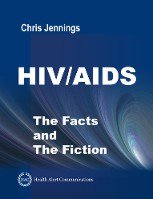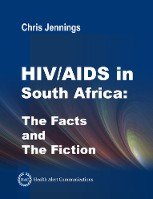 The concept that HIV is the product of biological warfare research is a popular. Unlike the Hepatitis B virus (HBV) – the other well-known, blood-borne, viral disease organism, which had been endemic worldwide for decades – HIV had come rocketing up out of nowhere.
The concept that HIV is the product of biological warfare research is a popular. Unlike the Hepatitis B virus (HBV) – the other well-known, blood-borne, viral disease organism, which had been endemic worldwide for decades – HIV had come rocketing up out of nowhere.
For some, the pronouncements of the Soviet KGB provided substantiation of this theory. The KGB broadcast that the CIA had experimented with HIV, and it had escaped from their laboratories. Continue reading
 Roger England is Chairman of the Health Systems Workshop, Grenada. His analyses and commentaries are lightly sprinkled through the scientific literature. The Writing is on the Wall for UNAIDS was England’s editorial in the British Medical Journal (BMJ), May 2008. England criticizes the rampant “exceptionalism” granted to HIV/AIDS across many domains.
Roger England is Chairman of the Health Systems Workshop, Grenada. His analyses and commentaries are lightly sprinkled through the scientific literature. The Writing is on the Wall for UNAIDS was England’s editorial in the British Medical Journal (BMJ), May 2008. England criticizes the rampant “exceptionalism” granted to HIV/AIDS across many domains.
In one strong statement, England writes: Continue reading
 In the words of René Dubos: “It’s easy to think you are emptying the ocean with a bucket when the tide is going out.”
In the words of René Dubos: “It’s easy to think you are emptying the ocean with a bucket when the tide is going out.”
Perhaps I paraphrase. The quote is derived from Dubos’ book, Mirage of Health. His writing is focused on the history of science and a wonderful discourse on the cyclic and repetitive nature of social thought and concepts of health and disease. To quote an Amazon.com reviewer: “extremely interesting reading for anyone interested in humanity, disease, science and history.” Continue reading
 As principal investigator at the Harvard School of Public Health, Max Essex, was recently awarded $20 million to study HIV prevention in Botswana – a meager reward for the man who played a pivotal role in creating the current conceptual model of the HIV / AIDS epidemic, compared to the billions distributed annually [1].
As principal investigator at the Harvard School of Public Health, Max Essex, was recently awarded $20 million to study HIV prevention in Botswana – a meager reward for the man who played a pivotal role in creating the current conceptual model of the HIV / AIDS epidemic, compared to the billions distributed annually [1].
Essex’s erroneous research spawned the theory that HIV originated in African monkeys. This misconception is critical because the concept is a pillar for the fallacy that HIV / AIDS is endemic in Africa. Continue reading
 HIV/AIDS statistics in South Africa (and Botswana) are entirely implausible. Given the known rates of HIV sexual transmission during vaginal intercourse, the purported current rates of HIV prevalence among the heterosexual adults of these countries exceed all plausible limits of human sexual activity. In this video presentation, Chris Jennings explains why the statistics for HIV/AIDS prevalence in South Africa are entirely implausibility (with mention of Botswana and New York City).
HIV/AIDS statistics in South Africa (and Botswana) are entirely implausible. Given the known rates of HIV sexual transmission during vaginal intercourse, the purported current rates of HIV prevalence among the heterosexual adults of these countries exceed all plausible limits of human sexual activity. In this video presentation, Chris Jennings explains why the statistics for HIV/AIDS prevalence in South Africa are entirely implausibility (with mention of Botswana and New York City).
 The first Africans diagnosed with AIDS were two white gay men who lived in the Republic of South Africa [1]. (The Republic of South Africa is typically referred to as “South Africa.”) As was typical for every AIDS case outside the United States early in the AIDS epidemic, both of these South African gay men caught AIDS in the United States.
The first Africans diagnosed with AIDS were two white gay men who lived in the Republic of South Africa [1]. (The Republic of South Africa is typically referred to as “South Africa.”) As was typical for every AIDS case outside the United States early in the AIDS epidemic, both of these South African gay men caught AIDS in the United States.
Both of these men were gay male air stewards (flight attendants) who had visited the United States before the development of their disease [1], and both died from Pneumocystis carinii pneumonia (PCP), a classical early-onset opportunistic infection secondary to HIV infection.
 Will Solimene Award from American Medical Writers Association (AMWA) Recognizes the Innovative Research, Definitive Analytics, and Scientific Conclusions challenging HIV/AIDS Statistics in South Africa
Will Solimene Award from American Medical Writers Association (AMWA) Recognizes the Innovative Research, Definitive Analytics, and Scientific Conclusions challenging HIV/AIDS Statistics in South Africa
Cambridge, Massachusetts, U.S.A.: The book HIV/AIDS in South Africa by Chris Jennings was awarded the 2014 Will Solimene Award for Excellence in Medical Communication. The Solimene Award recognizes outstanding work in medical, biomedical, and health communication published during the previous two years.



